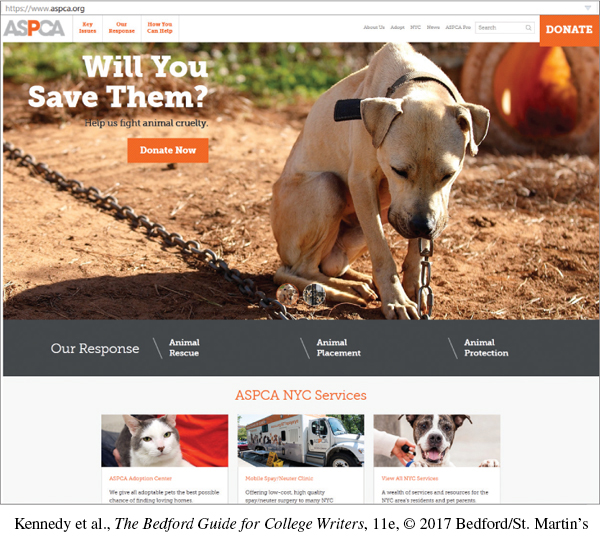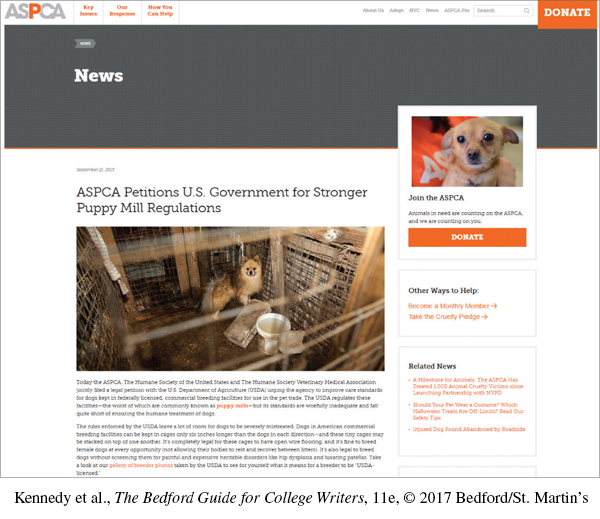Using Special Care with Internet Sources
Like all sources, online postings, blogs, and Web sites reflect the biases, interests, or information gaps of their writers or sponsors. Commercial and organizational sites may supply useful material, but they provide only what supports their goals–selling their products, serving their clients, enlisting new members, or persuading others to accept their activities or views. See Figure 32.1 for a sample evaluation of a Web site that provides both informative and persuasive materials.
ABCD

CDE

More important, keep in mind that many online sources do not go through the traditional editorial, review, and publication processes that generally make printed sources more reliable. Use the checklist that follows to take extra precautions when evaluating Internet sites.
RESEARCH CHECKLIST
Evaluating Internet Sources
Check the URL’s domain name (.com, .edu, .gov, etc.) to determine what type of organization is sponsoring the site.
.com: business or commercial site
.edu: educational site
.gov or .us: government site
.mil: military site
.org: nonprofit organization site
640
Carefully check the part of the URL before the domain name to confirm you’re on an appropriate site. For example, if you are researching U.S. census data, you want to be on census.gov, not yahoo.about.com/census_gov.
Review the site’s About page for information on the organization’s purpose and affiliations. If no About page is available, treat the site with extra caution.
Check the publication date or most recent update. Sites that haven’t been updated in more than two years should be treated with caution.
Beware of Web sites with excessive ads or links to commercial sites. Many unreliable sites exist purely as “clickbait,” designed solely to earn advertising revenue.